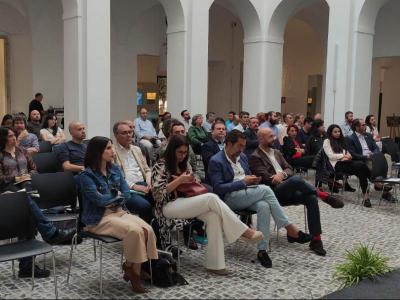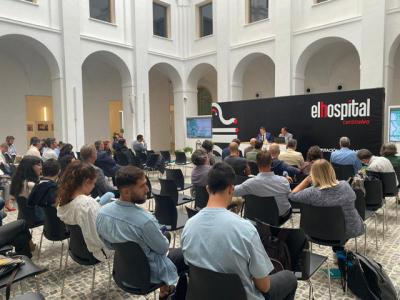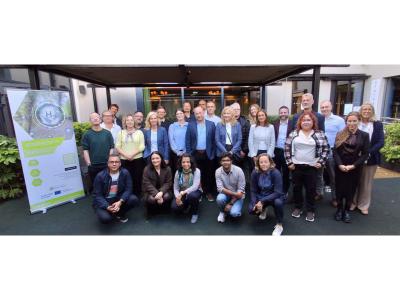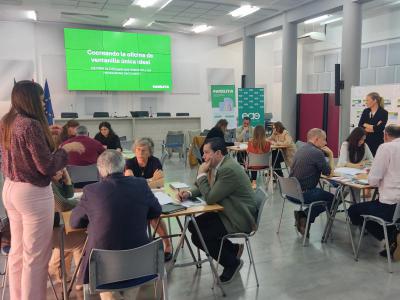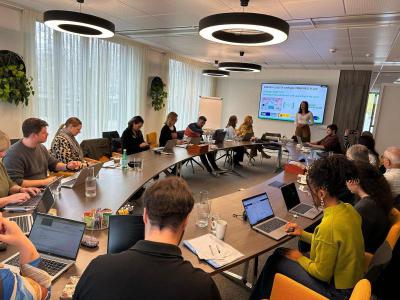Energy-efficient building renovation and sustainable mobility, key pieces to accelerate the necessary energy transition.
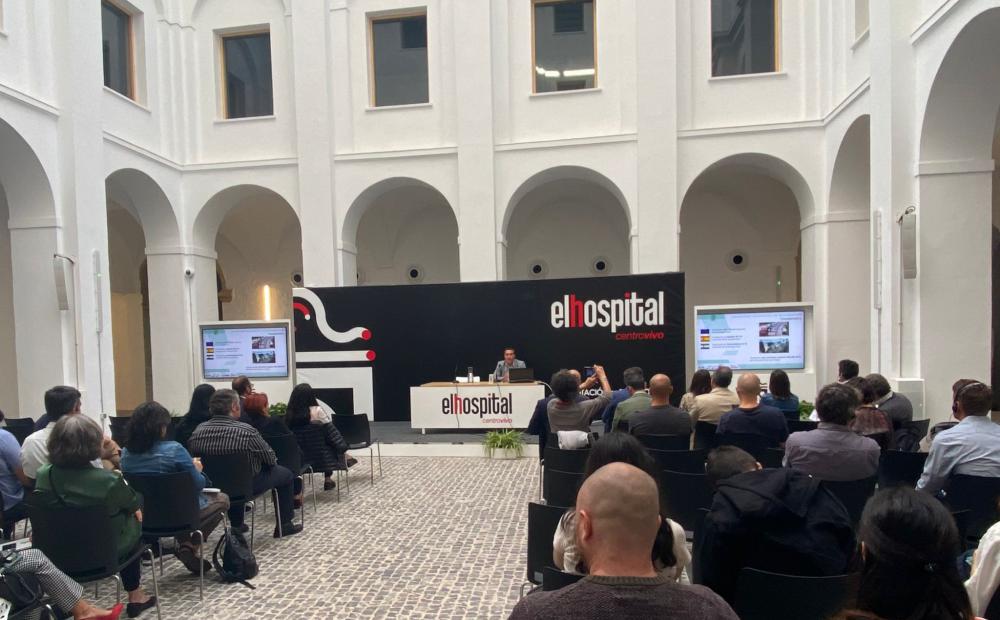
The 'Energy Transition in Extremadura: Transport and Building' conference, organized by the Extremadura Energy Agency Consortium (AGENEX), has highlighted the urgent need to act on the building sector, particularly in heating and domestic hot water (DHW), and in sustainable mobility, to advance towards a safe energy transition.
As explained by the director of Agenex, Cosme Segador, at the opening of the conference held today in Badajoz, at least 60% of the 400,000 buildings registered in Extremadura (more than 660,000 homes) were built before 1980; that is, before the regulations that require the insulation of facades was approved.
Therefore, heating and cooling homes and all types of buildings remain expensive as it "accounts for more than 60% of the demand for energy supply", so he has insisted on the measures that can be implemented in the building sector to reduce this consumption, such as building insulation, which prevents heat and cold loss, or photovoltaic self-consumption installations to generate electricity.
"If all buildings are well insulated, they will not lose energy and will consume less, and if they have a renewable installation to produce the electricity they need, not only will energy consumption be reduced, but less will be paid for the energy consumed," he said in his speech.
Segador has reminded that the Extremadura government is promoting these measures, especially self-consumption installations in SMEs and individuals, whose processing has been simplified to facilitate the deployment of these infrastructures in the region. In addition, the government has a budget of €13.9 million and six aid programs aimed at large companies as well as SMEs, NGOs, individuals and other public administrations.
Sustainable mobility
Regarding sustainable mobility, the director of Agenex has highlighted the Regional Strategy for the Promotion of Electric Vehicles in Extremadura, within the framework of the CISMOB project, which identified the strategic locations and the minimum number of charging points necessary according to the flow of vehicles, tourist resources, commercial, academic, and health resources.
The director also pointed out at the creation of an APP, developed through the Urbansol project, which allows the interoperability of charging points in Extremadura and Portugal. Currently, Extremadura has about 250 public use charging points.
Extremadura government
For its part, the Extremadura government is promoting these energy-saving and efficiency measures. Currently, subsidy lines are open for energy rehabilitation in homes, especially self-consumption installations for SMEs and individuals, as well as grants for the acquisition of electric vehicles and the installation of charging points, all part of the Regional Strategy for the Promotion of Electric Vehicles (to be developed up until year 2030).
The conference was closed by the Director-General of Industry, Energy, and Mines, Samuel Ruiz, who highlighted that "the transition to a clean energy model is more urgent than ever, a renewable model that helps us combat climate change, contributes to promoting the sustainable growth of our economy and to develop energy self-sufficiency."
He also explained that "accelerating investment in clean and efficient technologies can be the core of the solution for decarbonizing the economy, to contribute to energy independence and to offer stability in prices in the complicated energy scenario we now live in, contributing at the same time to environmental care."
The director general concluded by stating that "economic sustainability is directly linked to the sustainability of the energy system," and therefore, Extremadura is already working on the energy transformation towards a more inclusive and secure energy system that provides solutions while creating value for our companies and Extremadura society as a whole.
Likewise, during the conference, other experiences that are being developed in Europe have been presented, such as the Green Mobility Plan of Bucharest, and a Sustainable Mobility project in Portugal.
Similarly, the experiences of the FINERPOL project partners have been showcased, including the Renewable Energy Community of Prague, and a project Boosting the Role of SMEs in the Rehabilitation Process in Plymouth.
 ES
ES EN
EN

